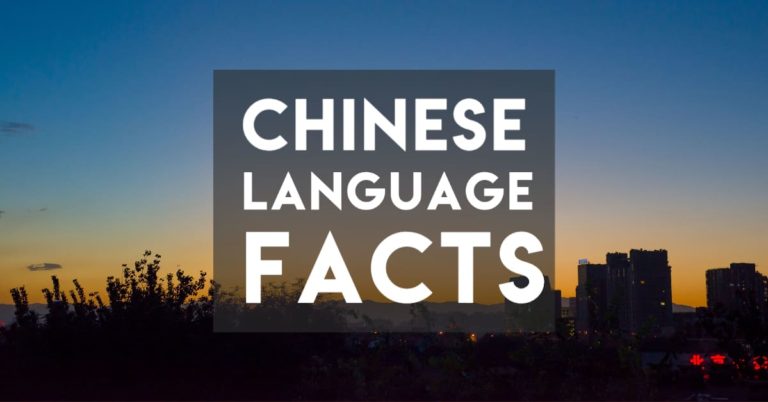Swahili in Zanzibar in Two months: Month 1 Update

This is our four-week/one month (well, nearly!) update of learning Swahili in Zanzibar. We’re spending two months in East Africa (mostly Tanzania and Kenya), and learning Swahili as best we can.
Update: we finished 2 months and left East Africa a little afterwards. Here are our final two-month videos!
We use the opportunity to try to tell you (in Swahili) why you should visit Zanzibar! Which is all we know so far.
We’ve learned a LOT about Swahili, about learning it, about Tanzanians (mostly Zanzibari) and a little bit about neighbouring coastal regions.
And for context, here’s our day 1 video, which we recorded after our first lesson. (We literally knew nothing before then.)
Here’s how it’s going so far, in what Socrates referred to as “SocrFAQtic form”.
Interested in learning Swahili? See these Swahili words and phrases to sound colloquial — a great way to get started!
Contents
“Why learn Swahili? Is it because of The Lion King?”
Why do you think? Yes.
Though, honestly, word seems to have gotten out about The Lion King. We were sick of hawkers yelling “Hey! Jambo! Hakuna matata!” by about the first time we heard it (see Seven Things we Didn’t Know About Living in Zanzibar for more on this). Nobody actually says any of that in daily life except to mzungu to sell them things at a “good price”.
Also, Swahili is spoken by something like 60-100 million people, which if you think sounds vague, is a similar sized range to that of prices we hear at the local market for fish.
Swahili is the most widely-spoken African language, apart from Arabic (which, you might know, is itself divided into something like 4-10 major varieties, with varying levels of inter-intelligibility, so you can’t just say “Arabic is a major language in Africa”).
The surprising thing is that Swahili is mostly just spoken in Tanzania, where it’s the national language (on top of being an “official” one).
Swahili one of the two official languages in Kenya. Except it’s nowhere near as useful in Kenya. Apart from the coastal regions of Kenya, Kenyans who goes to school study in English, and learn Swahili as a second language. They can speak Swahili, but it would be unnatural for us to use it in Nairobi (from what our Kenyan teachers tell us).
Plus, people in Kenya tend to use Sheng, which is kind of a dialectic blend of Swahili, English and slang from local languages.
Swahili is an official language in Uganda, but the only people who speak it are people in the military, who use it as a lingua franca. Even they reportedly don’t speak it “cleanly”. People tell us that Ugandans generally look down on Swahili. (Sad face)
So why bother? Because despite the fact that it’s used, misused and abused all over East Africa, Swahili is still a gateway to understanding a culture, to bridging a few gaps, to making some impromptu friends and maybe to paying slightly less than the other wazungu around us for fish. (“15,000 shillings [$6]? No! It is very expensive! I will pay 12,000!”) I said, negotiating in cleanly conjugated and very un-colloquial short sentences, before realising I forgot to bring enough money anyway… thus getting it for even less. Win!)
“Why Zanzibar?”
Well, we couldn’t go to the “mainland” because then we’d say “Tanzania” to you all. And that looks too much like “Tasmania”, which my Australian family finds oddly confusing.
Actually, Zanzibar is apparently the home of “clean” (sanifu) Swahili. People here speak it well, even when you go rural. They may not all speak it perfectly, but they speak it how it should be spoken.
Also, Zanzibar looks like this:

Enough said.
“What’s the hardest part about Swahili?”
Overall Swahili isn’t too hard. Maybe we’re just getting confident after being beaten over the head with the stick of Arabic (and the Middle East in general), but it all seems very approachable.
Which isn’t to say it’s easy. It’s not. All the words are unfamiliar (go see the BBC in Swahili if you’re unsure, and see if you can pick out as many words as you could in for example German… doubt it), and the grammar gets pretty sophisticated.
The hardest part of Swahili is this sorcery called “noun classes”.
“Noun classes” are like genders in French or Spanish, except unlike those which just have two (or even the skullduggery of three in German), there’s one billion of them. And each class makes verbs, adjectives and numbers change shape.
OK maybe not one billion there’s maybe 18-20, but the fact that even academics don’t know how many noun classes there are is reason enough to panic!
For example take the sentence like “those lions were beautiful”, which no, we haven’t gotten to say yet.
If you change it to “those lakes were beautiful”, guess what, you have to also change every other word in the sentence.
- Those lions were beautiful = Simba wale walikuwa mazuri
- Those mountains were beautiful [No problem! Just change the word for “mountains”, right? FRAID NOT] = Milima ile ilikuwa mizuri
See how every other word apart from “lion” changed? It’s not great.
“Are you learning Swahili faster than Arabic?”
And related:
- How have we changed the way we learn?
- What have we learned about learning?
Even though Swahili has its complications — yes. On the whole it’s much easier to learn than Arabic for a number of reasons.
Firstly, culturally, Swahili is way easier to practise.
People are really willing to speak to us in Swahili day to day. They’re accepting of our bad level. In more remote parts of the island, people strike up conversations with us impromptu. If they speak poor English and we speak poor Swahili, they’ll opt for Swahili.
People are very patient too when we’re speaking. If we pause unnaturally as we look for a word, or have to try awkwardly to explain something, they wait patiently. There’s no rush. “I want a thing that uses electricity and kills mosquitoes.” I once said. (Do you know what I meant? Coz that guy sure didn’t.)
Finally, there are lots more chances to speak Swahili. If you see someone on the road in a small town, that’s a chance to speak. There are many more people to speak to, too. There are no awkward male/female interaction rules like in the whole of the Middle East, even though the whole island is Muslim — just another example of how the cultural norms of the Middle East about women do not equate to Islam. Even children speak to us — though sometimes, they want money, which makes us a bit sad. Apparently it’s a learned behaviour from tourists, and we’ve been told not to encourage it.
Secondly, Swahili is much easier to absorb.
The fact that Swahili is spoken clearly, with crisp syllables and enunciation, makes it much easier to understand as a language. If we hear a word a few times we can go look it up easily because there’s no guesswork about how the word is spelled.
The Latin alphabet helps a ton, because it means we can learn words from menus and the newspaper easily. We can immediately read all the words out loud, and look them up as we need to.
One complication — there are far fewer resources and teachers for Swahili.
We put together the best resources we found for learning Swahili, but there are far fewer than for Arabic — let alone for major languages people learn like French or Chinese.
There are no great free online dictionaries. We found one, but it is missing a lot of words. You can buy a physical dictionary (and we might) but then we’d have to carry it around.
Teachers are MUCH harder to come by than even for dialects of Arabic. There’s just a few on italki (our platform of choice for finding language teachers). In-person teachers vary greatly in quality.
The online software tools are pretty limited too. We tried a few and didn’t like any of them, and wouldn’t recommend them. The textbooks we use are much better.
“Are you guys considered mzungu if you’re Asian and … Persian?”
The word mzungu is what’s used to describe foreigners. It’s not offensive (unlike for example gweilo in Hong Kong), but it’s also a clear separator: you are mzungu, we are not.
So are we wazungu (the plural of mzungu)?
Jo — yes. As an Asian (of any kind) she stands out in Africa so far. Unfortunately Jo still gets called “China!” in many places, probably because of the outsized presence the Chinese Government has in Africa.

I also am a mzungu. Technically I’m Persian, but I dress like a mzungu and act like one.
But in principle, I could pass by as a local if I spoke better and dressed differently. Because it turns out that there are Persians in Zanzibar! Well, blends of Persians, and they were actually Parsi (who are ethnic Persians, from outside Iran proper). Probably the most famous Parsi was Freddie Mercury, who was born and spend his early childhood on the island.
“Does knowing Arabic help with learning Swahili?”
Overall not really. There are a few words, but nowhere near the overlap between European languages, or even between European languages and English.
If you read our guide to Swahili before, you’d know that Swahili’s vocabulary is heavily influenced by Arabic.
That said, they’re totally different languages. Swahili is an African language (of a family called the Bantu family), with some Arabic loanwords.
It’s a bit like learning German if you know English (or vice versa). If you hear the numbers fünf, sechs, sieben, acht (“five, six, seven, eight”), you’ll think “hey, those sound vaguely familiar!”, but then the numbers zwanzig, dreizig and vierzig will stump you. Swahili and Arabic are something like that. There are a few words we “get” and learn easily, but then we have to learn mostly new vocab and a totally new structure.
To an extent though, learning any language helps with learning any language. You make associations, create silly/fun mnemonics, and generally get better practised at it. It’s like athletics. If you practise picking up new sports, you gain confidence and learn more sports more easily.
What’s next: for a few weeks, Jo and I will try to speak just in Swahili. Let’s see how that goes. More coming soon when we do our two-month update!







Hi Dana, very interesting article/blog. I want to teach my sons some not-so-common languages. Swahili, Kazakh, Naxi and Cherokee top the list. I’m interested in teaching them several words, several phrases, and several greetings in several languages – the languages I mentioned don’t have many resources online.
That’s really cool, Chris. If I went back in time, I’d also have learned the first 2-10% of a bunch of languages before going deep in any. The reality is that you just need the very basics to establish a bit of understanding with someone of another background, and to give you the option of going deeper later in life. Topic for another day. Feel free to email us and talk about this further.